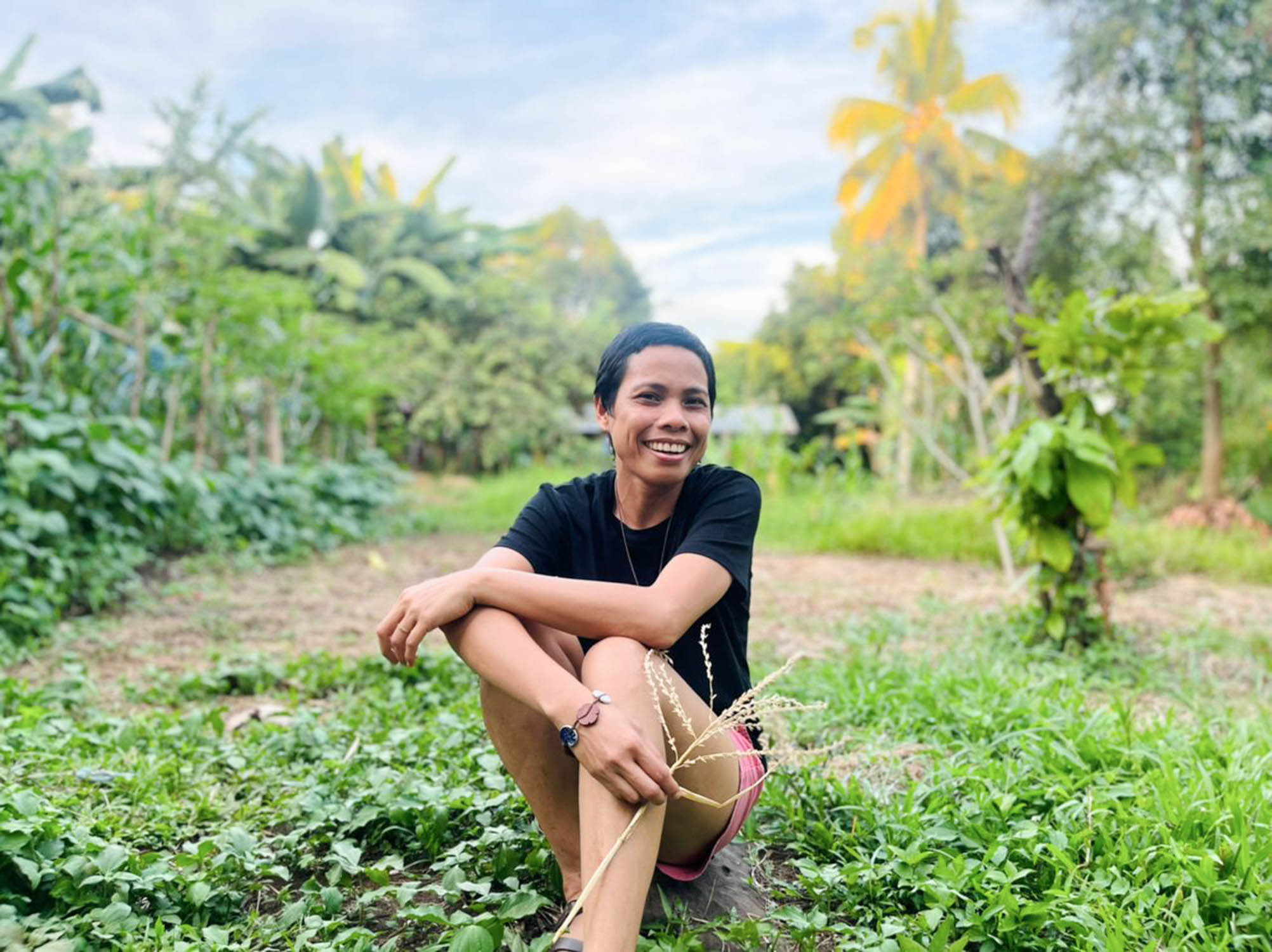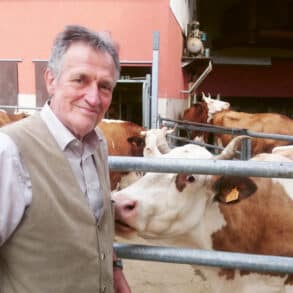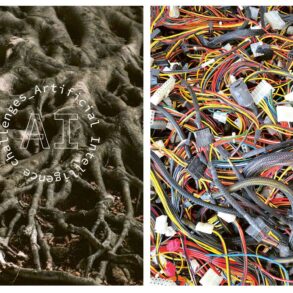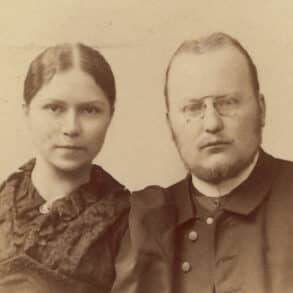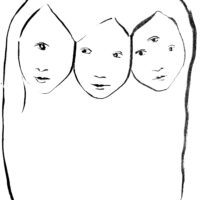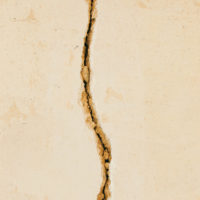Kate Estember just turned 40. At 26, she became an Assistant Professor of Psychology, and at 28 she co-founded the Tuburan Institute, the first Waldorf School in Mindanao, the second largest island of the Philippines. Walter Siegfried Hahn spoke with her about her past, her future and what she is involved with right now.
When you visited us a few years ago, we were impressed by your climbing skills. You can almost walk up a coconut tree like a squirrel – it looks light and easy.
This goes back to my childhood, and I have never given it up. I grew up with eleven siblings. On our farm, we had workers. We had always relatives visiting. There were a lot of people around. So many people. I am actually an introvert, but with all these people around I had to learn to be an extrovert. There was no space for individuality. There was no space at all. Climbing trees became a necessity, so that I could go to the top of a tree, where no one could reach me. I am using this still now. I have internalized it. It provides me peace and freedom. I also lie down on safe and big branches of trees and just face the sky. It gives me time for reflection and imagination.
How did you grow up?
I am really the child of the life processes of a farm. I have soaked them in. Both my parents were poor, only going to school till 2nd or 3rd grade. My father came to Mindanao when he was 12 and somehow was able to claim huge tracts of land in his youth. The land sustained us, making it possible for all my siblings to go to a private school. Everyone in the household was doing something; no one was just sitting around. We had food from our own farm and garden. The life forces helped me grow, grow a strong body. Waldorf is in some ways a recreation of my childhood. When I went to high school, life changed dramatically. I was only 12 and lived with some siblings in another city. I had to manage my own finances. I had done very well in primary school, but in high school I slept through the lessons. I became depressed. I never loved school, especially since I had to witness how school mates were abused. I seriously pondered that there must be a better way to raise a child. At 16, high school ended and I just wanted to get out, go somewhere else. I decided to take up psychology. That is how I came to do college in Iloilo, another island, very far away from home. As I was the youngest child, I was supported by my whole family. I had a good life. One day, we were asked to do a project: the developmental stages of a child. Although this was supposed to be done on site, I was able to convince my teachers that I needed to do that back home. I just followed an intuition. Actually, it was the beginning of my Biography Work.
For this research project I interviewed my whole family and all my neighbors and found out things which took me three to four years to digest. My mother had me when she was already 45. Most of my siblings were already adult when I was conceived and when they heard about the pregnancy; they were angry, and so were the neighbors. They warned of a possible down syndrome. They suggested abortion. My mother had a major crisis. At that time she had become seriously religious. She went out to a rice field and lived there alone for one month. Then she decided she will just do her best. I believe this event triggered my resilience. Will has been my twin.
I guess when you went back to college, you must have been a different being?
Right. I had also slept through college. Besides, I was partying and drinking. But around 18, I, with 20 others, was chosen for the radio program, out of 500 applicants. I thought: I must have something. My opinions made sense for the others in class. And I was doing counseling, on air, in my 3rd year college. When I was elected into the Presidency of the Psychology Department, it finally dawned on me that I am capable. I used the last year in college to catch up and received a Bachelor in Psychology. On the day before graduation I got a job as a guidance counselor – where I worked for six years while doing my Masters and working as a volunteer for Gawad Kalinga.
Volunteering is a family tradition?
My mother was strongly involved in volunteering in the church despite all the children and managing the farm. But more and more I felt that the recipients of the volunteer work were taken advantage of. The volunteers would say «we love you» and I felt, no, they are taking advantage. I was pondering: what is true love? But after ten years in Iloilo I had a general crisis. Over all this time I had never been back home. This is what I did when I was 26. A few weeks previously, I was offered a job as Assistant Professor at the University of my home city. However, after a few weeks I got bored and took up clinical psychology in Davao. That’s where it clicked. To a question I asked about how we could truly make an impact and contribute to the serious challenges of society, especially the youth, I received the answer: this is not the right venue for the question. The statement kind of pulled the rug under my feet. I knew this was the beginning of the end of something. I dropped the Masters Class, but kept teaching and received a very good evaluation. But it became clear to me that these students will work in corporations and will keep the vicious cycle going. I am the one who gives them the resources to destroy others. Again, I was asking: what is true love? I told myself: I do not want to be part of that cycle anymore. So I gave up the job.
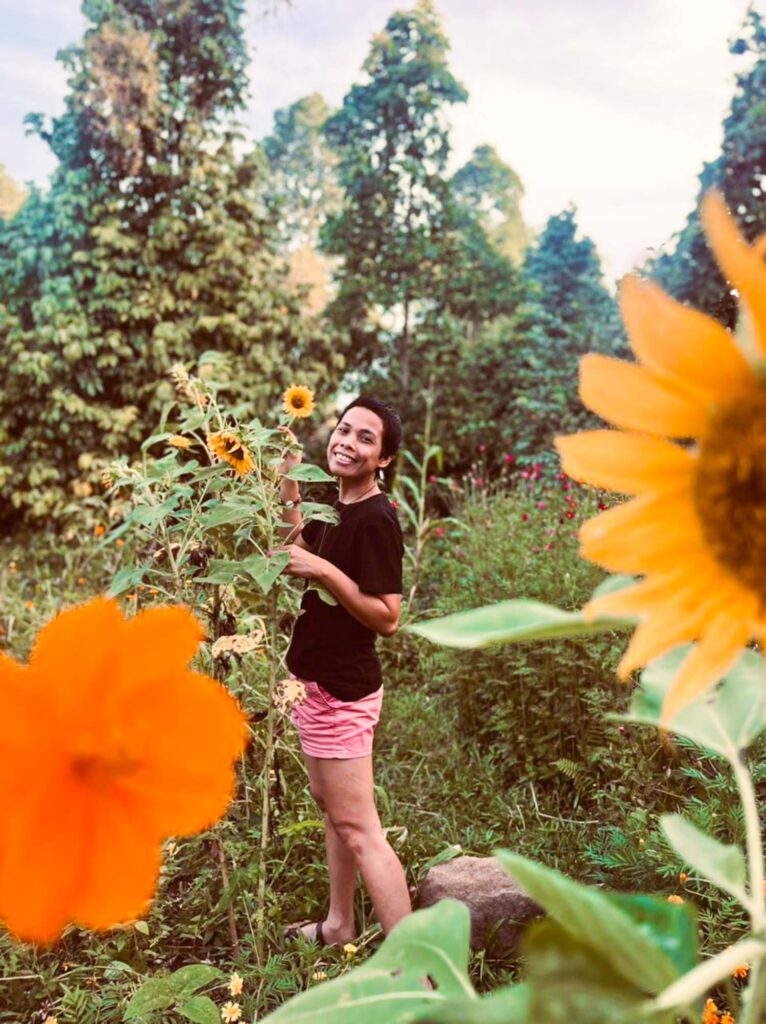
You were 28 and nothing was left of your former life. Was there anything new?
I just knew I had to let go. I did not know how to go on. But at that time I heard that Nicanor Perlas was running for President, so I volunteered for his campaign. I had heard a lecture of his about AI in 2006. I had also volunteered to take photos at the Gamotcogon Waldorf School. Through the contact with other volunteers I got more and more interested. After the elections, the work continued on other avenues and a program was provided in May 2011: Aletheia. And in the 21 days together with other seekers I transformed. What really attracted me to Waldorf was the aspect of social transformation through inner change. What really pushed me was the sharing of Jim Sharman of Gamotcogon Institute. And I decided I want to build upon that quality he described. I had considered going to a convent and on my 28th birthday I declared, «I will not do that.»
I had flashes of heads of classmates being hit during my elementary years and decided: social transformation through education. Maya was also there at Aletheia, a teacher trainer. A month later, she resigned from her job in order to found Tuburan with me. She was an amazing partner. We planned the school systematically, went to trainings and visited other initiatives. She was complementary to me, but we also had fundamental differences and the conflicts led to her leaving in 2017.
When we started the school in 2012, we went on a life-changing journey. I am beyond grateful to Anthroposophy. I started as kindergarten nurturer, then eventually became a grade school teacher. As the school was small, everyone was involved with everything. Our long-term mentor Horst Hellmann told me in 2014: Kate, go study! And that is what I did when I could and that is why I finally decided for the training in Stuttgart also, which ended in the spring of 2021. My original plan was to take on another cycle when I came back, to start from Class 1 again, since I trained for the grade school level, but due to several reasons I will now work on establishing the high school.
As a true Gemini, I know that the High School is not the only topic you are involved in.
As a school community, we’re now embarking on reviewing and if necessary, changing and /or refining many aspects of our policies, curriculum, and personnel related matters. I am very happy how Tuburan is growing and becoming. As part of my personal interest and continuing self-education, I am taking the 3-year Biography Work Training. Because of this I have also renewed my license in Guidance and Counseling and have already worked with one client.
I am also growing a restaurant and maintaining a 1 hectare land with my friends. This was never part of my plan. I am intending to grow and build my other Anthroposophic initiatives here and hopefully turn this place into the Anthroposophical Study Center in Davao or Mindanao. I hope and pray! In the Covid time, I became very involved with the cause to fight against mandatory vaccination, especially for children. I’ve learned so much from this experience. It felt effective to dedicate my energies to children beyond Tuburan and Waldorf. It widened and deepened my scope of concern and care for the world. I am also supporting a Waldorf initiative in the province of Antique.
How do you see the school and other initiatives and the world in general develop in the next few years?
I think that, in the Waldorf schools in the country we know what we do not want. But it is time to know what we want. Also, I see a great urgency to do something with our food ecosystem. I’m speaking of our relationship with nature in general and the threat to our food supply. I think my 2nd half life will be dedicated to this: education and agriculture and the rest of what I do should support these.
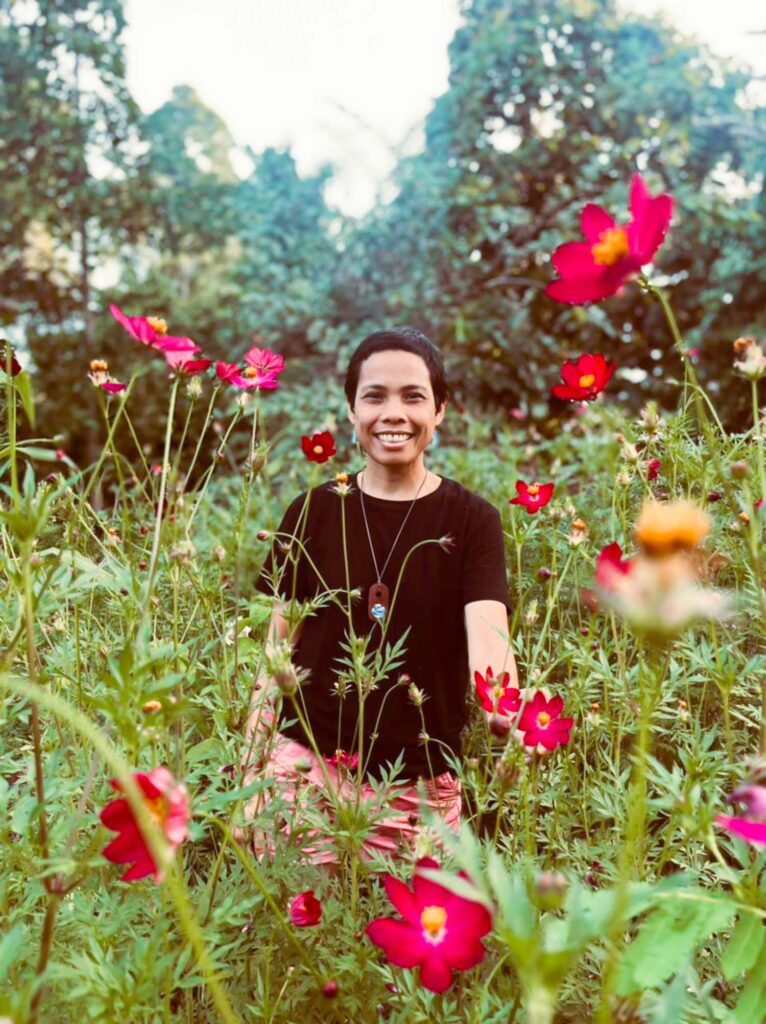
You have trained and taught scientifically – how do you perceive Anthroposophy in regard to science, both in its foundation and in the practical life in the Philippines?
I want to start by saying that Anthroposophy brought back life to the science that I know. When I was starting, I found some claims of Anthroposophy arrogant and assuming. Going deeper, each time it felt like being rebuilt and renewed with new insights and understanding of myself and in effect, of life and the world. This process has a huge implication and meaning to what and who I am in connection with my work and encounters.
Anthroposophy as science and spiritual impulse is both a gift and challenge for me. It’s a challenge because I cannot separate it from my own humanity. It’s like doing an observation of myself while witnessing and participating in the world that surrounds me; and what and how these encounters affect each other and the world. After which, only after then, the real task and call happens. It’s a tedious and demanding process to be in. This challenge is also a gift. Life is a lot easier and bearable because I’ve met Anthroposophy. Its promise of self awareness and transformation is more than enough for me to get by and choose a more meaningful and purposeful life. I specifically love its scientific approach to observation and inner inquiry. For me, this is where all starts. One of the foundational aspects of Anthroposophy that I also deeply hold in my soul is its image of the human being and its connection to the world. This image is both mind-blowing and grounding. It made me say, «Life makes a lot of sense now.»
How do you see the possibilities of Anthroposophy being applied in the Philippines? Where can it find fertile soil? How is it in the Catholic, Muslim and other religious contexts?
As a country challenged with its identity due to long years of colonization, I think Anthroposophy must endeavor to strengthen its work in education, agriculture and medicine. I sense that it will start in and among those who are already engaged in Anthroposophical initiatives.
I also observe that it’s natural for a human being to seek for something higher and meaningful. I’m starting to see that the growing need to have a grasp of one’s biography and illness or why things happen is becoming stronger, thus biography work, art therapy, meditative work, and healing modalities inspired by Anthroposophy are strongly needed.
Another field where I could see possibilities is working with grassroots initiatives. We need to bring Anthroposophy to the ground with more understandable and relatable language. I saw this with Doctora Moon: how she would translate all foundational concepts by using the Bisaya language for the people in the community and even use daily life challenges and practices where certain concepts can be applied. All these must start in our backyards, our own initiatives. People must sense this in our processes and direction.
What do you feel is most important for humanity at this point in time? And if you had one wish free, what would it be?
As a teacher, it matters to me that each child can develop a certain level of objective resiliency to root from warmth and love. Imagine what it could do when one is rooted in warmth and love?
If «awakening to oneself and one’s true nature» would be a wish that could be granted, that would be my one and only wish. Because through this, our need for societal transformation is close to reality. It is so much joy and heaven on earth experience to witness someone awakening and manifesting her own godliness and holiness.

